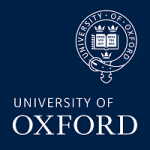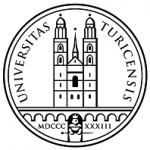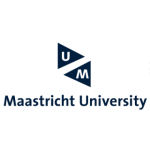项目介绍
About the course
The DPhil in Health Data Science (HDRUK/Turing Wellcome) offers highly-qualified students the opportunity to join a unique national doctoral programme combining expertise in three fundamental areas: statistical, computational, and health sciences.
It is not possible to apply to the DPhil in Health Data Science (HDR UK/Turing Wellcome) directly. Students must first have been successful in obtaining an offer to join the HDRUK-Turing Wellcome PhD Programme, applications to which are administered by HDR UK and the Alan Turing Institute (see ‘How to apply‘ for details).
The DPhil in Health Data Science (HDR UK/Turing Wellcome) is part of a national programme of health data science doctoral courses, the HDRUK-Turing Wellcome PhD Programme in Health Data Science. This national programme is supported by a network of seven UK universities, including Oxford, which are the core partners in Health Data Research UK (HDR UK), an independent and not-for-profit institute dedicated to promoting health data science in the UK, and particularly to providing safe and secure access to health data to support all types of health research. The HDR UK Oxford site’s focus is on two of the major strengths of health research at the University: facilitating recruitment and data collection in 21st century clinical trials using electronic health records and mobile devices, and enhancing observational studies of human health through improved collection of participant characteristics (phenotypes) using novel technologies and statistical methods.
The HDRUK/Turing Wellcome PhD Programme in Health Data Science is a joint venture between HDR UK and the Alan Turing Institute, the UK’s national institute for data science and artificial intelligence. Particular strengths in Oxford’s contributions to the Alan Turing Institute are in statistical modelling and inference, for example in the field of human genetics, where research at Oxford has revolutionised basic medical science, understanding the causes of disease, and drug discovery.
The course is a four year programme aimed specifically at students trained in quantitative disciplines (eg mathematics, computer science, physics), to help boost the number of health data scientists with formal training in these areas. The course provides a stipend, tuition fees (at the Home fee rate), research and travel expenses, and training and career transition support at the end of the course. Students enrolled at Oxford will be part of a national cohort based at each of the partner universities (additionally, Cambridge, University College London, Edinburgh, Belfast, Birmingham, and Manchester).
The first year of the course consists of taught short courses, delivered by each of the partner universities, and short project work, culminating in a 12-week individual project that is intended to lead into the thesis. Year 1 of the course will be based in the Oxford Big Data Institute, a multi-disciplinary hub that focuses on the analysis of large, complex, heterogeneous data sets for research in clinical medicine and population health. The remaining three years of the course will be dedicated to the thesis project, to be completed under the supervision of researchers affiliated with HDR UK or Alan Turing Institute.
Supervision
The allocation of graduate supervision is the responsibility of the Medical Sciences Doctoral Training Centre and it is not always possible to accommodate the preferences of incoming graduate students to work with a particular member of staff.
In the first year, students will attend a training programme delivered (in person, where possible) by each of the partner institutions. Students will allocated supervisors in their first year to provide academic supervision during the training programme and to facilitate the selection of a thesis project.
From Year 2, students will have thesis supervisors, with whom they will begin to work during their 12-week individual project towards the end of Year 1. Students will be expected to have a minimum of two supervisors, preferably in a co-supervisory arrangement to ensure students can always get adequate support for their research.
Assessment
All students will be initially admitted to the status of Probationer Research Student (PRS). Within a maximum of six terms as a full-time PRS student or twelve terms as a part-time PRS student, students will be expected to apply for transfer of status from Probationer Research Student to DPhil status. This application is normally made by the fourth term for full-time students and by the eighth term for part-time students.
A successful transfer of status from PRS to DPhil status will require the submission of a report on progress to date on research and future plans. Students who are successful at transfer will also be expected to apply for and gain confirmation of DPhil status within ten terms of admission, to show that their work continues to be on track.
Both milestones normally involve an interview with two assessors (other than the supervisors) and therefore provide important experience for the final oral examination.
Students will be expected to submit an original thesis within a maximum of four years from the date of admission. To be successfully awarded a DPhil students will need to defend their thesis orally (viva voce) in front of two appointed examiners.
The frequency of meetings with supervisors will depend on which department the thesis project is based. Commonly, within those departments based with the Medical Science Division, once a fortnight is typical.
Graduate destinations
This is a new course and there are no alumni yet. It is expected that graduates will be extremely well-placed to take on leading roles in industry, academia and the public sector.
Changes to this course and your supervision
The University will seek to deliver this course in accordance with the description set out in this course page. However, there may be situations in which it is desirable or necessary for the University to make changes in course provision, either before or after registration. The safety of students, staff and visitors is paramount and major changes to delivery or services may have to be made in circumstances of a pandemic (including Covid-19), epidemic or local health emergency. In addition, in certain circumstances, for example due to visa difficulties or because the health needs of students cannot be met, it may be necessary to make adjustments to course requirements for international study.
Where possible your academic supervisor will not change for the duration of your course. However, it may be necessary to assign a new academic supervisor during the course of study or before registration for reasons which might include illness, sabbatical leave, parental leave or change in employment.
For further information please see our page on changes to courses and the provisions of the student contract regarding changes to courses.
录取要求
-
A UK bachelor’s degree of at least an upper second class (2.1) in statistics, mathematics, computer science, physics or an allied discipline.
-
A bachelor’s degree of any outcome/discipline and can demonstrate their suitability through additional qualifications or experience in mathematics, statistics, computer science, physics or an allied discipline (such as a master’s degree or research experience).
-
Successful applicants will develop their expertise in quantitative science (e.g. maths, statistics, physics and engineering) and learn new skills.
联系方式
电话: +44 1865 270000相关项目推荐
KD博士实时收录全球顶尖院校的博士项目,总有一个项目等着你!






